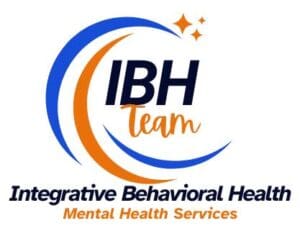Healthcare is undergoing a significant transformation, moving away from fragmented approaches toward more holistic and patient-centered models. At the heart of this evolution lies Integrated Behavioral Health (IBH)—a model that seamlessly combines behavioral health services with primary care to address the interconnected nature of mental and physical well-being.
In this blog, we’ll explore what integrated behavioral health entails, its profound benefits, and how IBH Team’s initiatives are making a difference.
What Is Integrated Behavioral Health?
Integrated Behavioral Health is the practice of incorporating mental health care, substance use disorder treatment, and other behavioral health services into primary care settings. Instead of treating mental and physical health as separate entities, this approach recognizes their interdependence and provides comprehensive care under one roof.
Key components of IBH include:
- Collaboration between providers: Primary care physicians, behavioral health specialists, and care managers work together to create tailored treatment plans.
- Proactive screening and intervention: Early identification of behavioral health issues is integrated into routine primary care visits.
- Seamless communication: Shared medical records and regular team meetings ensure coordinated care.
Why Is Integration Essential?
Mental health significantly impacts physical health—and vice versa. For example:
- Chronic conditions and mental health: People with chronic illnesses like diabetes or heart disease are at a higher risk for depression and anxiety.
- Stress and physical symptoms: High stress levels can exacerbate physical symptoms, leading to conditions like hypertension, migraines, and digestive issues.
- Mental health stigma: Many individuals are more likely to seek help for mental health concerns in a familiar setting like a primary care office.
By addressing behavioral health within the primary care framework, IBH reduces stigma, improves access to care, and ensures that mental health is treated with the same urgency as physical health.
Benefits of Integrated Behavioral Health
- Improved Patient Outcomes
Treating mental and physical health together leads to better overall health outcomes. Patients are more likely to adhere to treatment plans, manage chronic conditions effectively, and experience improved quality of life. - Enhanced Accessibility
By embedding behavioral health services in primary care, patients can access mental health support without needing separate appointments or referrals, breaking down barriers to care. - Cost Savings for Organizations
Integrated care reduces healthcare costs by minimizing hospitalizations, emergency visits, and complications from untreated behavioral health issues. - Holistic Care Experience
Patients receive care that addresses their complete health picture, fostering trust and satisfaction with their healthcare providers.
Success Stories: The Impact of Integration
At IBH, we’ve witnessed the transformative power of integrated behavioral health firsthand. Here are a few examples:
- Case Study 1: Early Detection of Anxiety in Chronic Pain Patients
A primary care practice partnered with IBH to screen chronic pain patients for anxiety and depression. By identifying these conditions early and providing therapy within the same office, the practice significantly reduced emergency visits and improved patient pain management outcomes. - Case Study 2: Reducing Workplace Stress
An organization implemented an IBH model through its Employee Assistance Program (EAP). Employees had access to mental health counselors directly through their wellness clinic, resulting in a 30% decrease in absenteeism and higher workplace productivity.
These examples illustrate how integrating behavioral health isn’t just a healthcare innovation—it’s a game-changer for individuals, families, and organizations.
How IBH Team Supports Integration
At IBH, we specialize in creating integrated behavioral health solutions tailored to the unique needs of healthcare providers and organizations. Our services include:
- Behavioral health screenings: Tools and resources for early detection of mental health concerns in primary care settings.
- Training for providers: Equipping healthcare professionals with the skills to address behavioral health effectively.
- EAP integration: Helping organizations align their wellness programs with the principles of IBH.
- Data-driven insights: Leveraging analytics to track outcomes and continually improve care delivery.
The Future of Healthcare Is Integrated
Integrated Behavioral Health represents a shift toward treating patients as whole individuals, not just isolated symptoms or conditions. This model addresses the root causes of health issues and promotes long-term well-being, benefiting patients, providers, and organizations alike.
As we continue to evolve the healthcare landscape, IBH is committed to driving this change. By bridging the gap between mental and physical health, we can create a future where every individual receives the comprehensive care they deserve.
Interested in learning how Integrated Behavioral Health can transform your practice or organization? Contact IBH today to explore our innovative solutions.



